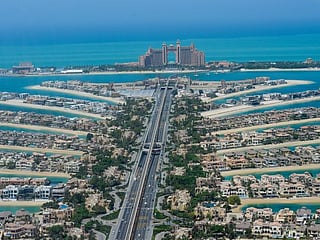Ramadan 2021: Will UAE shoppers start spending again on fashion and more?
Majority of UAE shoppers stick to caution when it comes to spending on non-grocery

Dubai: UAE retailers will need to go the extra mile with their Ramadan promotions to get shoppers interested, a majority of whom are still extremely cautious on how they spend.
Sure, there will be categories such as groceries that will see increased spending during the Ramadan month, but other categories such as fashion, accessories and auto have work to do. “Price cuts are not always the best promo mechanism that shoppers respond to,” said Didem Sekerel Erdogan, Senior Vice-President - Intelligent Analytics at NielsenIQ, the market research firm.
This time around, a year after the pandemic, 98 per cent of UAE consumers remain “constrained and cautiously insulated”, which is how NielsenIQ describes the current mindset. Plus, for a lot of consumers, they would have done their non-essential spending in December/early January, or they could be saving up for a staycation or a short holiday trip during the Eid break.
And as is the case with each promotional cycle, online will have its own promotions, with some of them making changes to their offers in real-time.
Try and convince
So, what would it take to get UAE consumers buying, or at least checking out the offers? “Promotions that work differ across countries and also across categories,” said Erdogan. “There is no magic one-size-fits-all formula that works.
“Shoppers in UAE like bulk offers and special packs, while Saudi shoppers respond to price discounts.”
Some catching up
Even for consumer goods brands, this Ramadan will mean a chance for some catching up. Typically, the Ramadan weeks are among the best phases for these labels, but 2020 was an exception.
Last year’s buying was “impacted by the first wave of the pandemic in March, resulting in stockpiling and panic buying prior to the festive period,” according to NielsenIQ. “This year, the recovery in FMCG festive sales will be driven by more relaxed restrictions, optimism surrounding the vaccine availability and the end of panic buying behaviour.”
Push for key categories
But RedSeer Consulting is more optimistic in its projections for what UAE and Saudi retail sales this Ramadan and the rest of the year could be. It reckons that $2 billion worth of sales will happen in these two markets – through online channels alone – in 2021.
That’s two times higher than what it was in 2019, mostly led by new waves of first-time shoppers buying from online channels. And more recent entrants to e-shopping are sticking with it.
Will fashion make a comeback?
Among categories, apparel was one of the worst hit during the COVID-19 year, according to retailers. Apart from some buying spurts during a couple of major promotions and during December, consumers were not in the mood to spend on clothes.
Retailers are hoping that the coming weeks will see some movement for fashion and accessories. According to RedSeer report, “We also find a high level of excitement for jewellery…”. But with the way gold prices are behaving – Dh200.75 a gram was the Dubai Gold Rate on Friday (April 16) – it could be a steep hurdle for cost-conscious shoppers.
Stick to online shopping and delivery
Online delivery options will continue to run strong during Ramadan. In a poll done by AdColony, 31% of respondents said they will choose home delivery options for their Ramadan purchases, with 54% saying they will shop for clothes, 45% for grocery, and confectionery with 36%. 67% see their cosmetic expenses increasing during these weeks, with perfumes the most popular category with 62%, haircare products with 43%, and make-up and cosmetics with 31%.
Sign up for the Daily Briefing
Get the latest news and updates straight to your inbox









